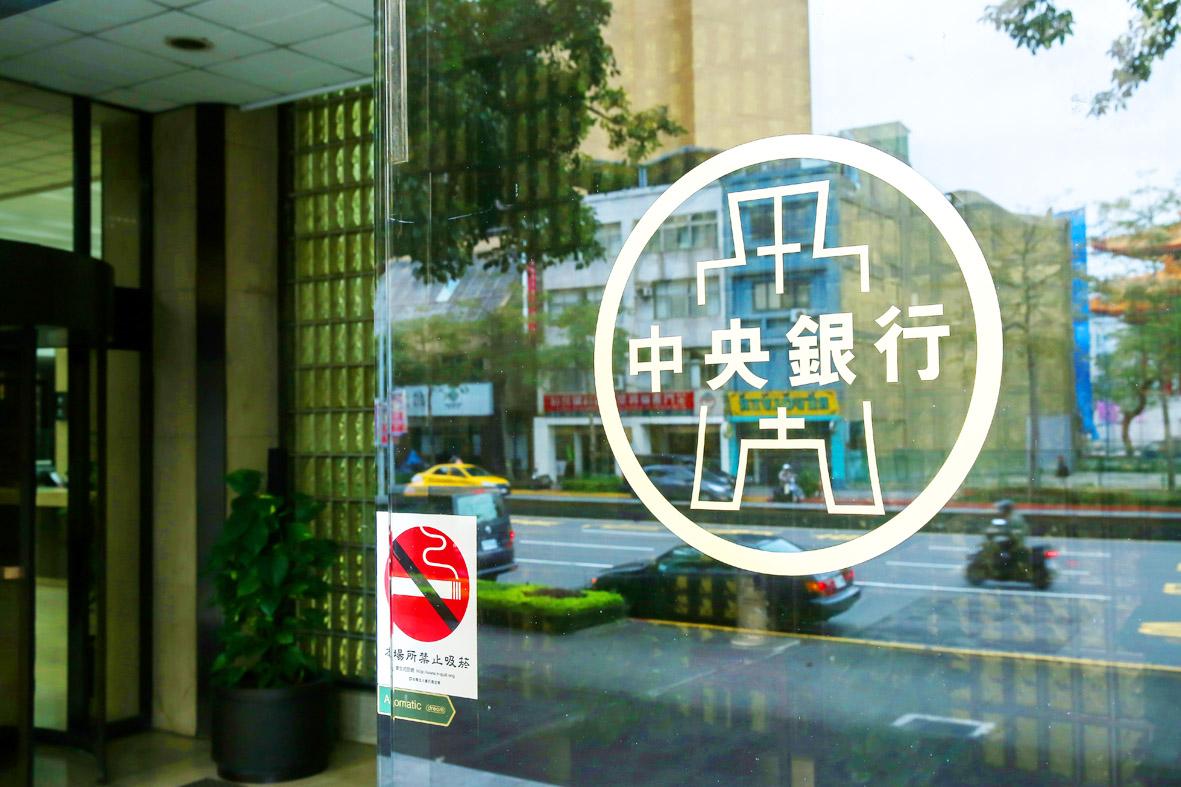The central bank has suggested easing overseas investment rules for domestic life insurance companies to create demand for the US dollar and take some appreciation pressure off the New Taiwan dollar.
The bank made the veiled plea in a statement on Sunday after local media last week made known its suggestion to the Financial Supervisory Commission (FSC) in a letter that was met with a cold shoulder.
“Japan and South Korea have removed or raised investment limits for their life insurers so they can pursue better yields, a trend that has gained prevalence,” the central bank said in the statement.

Photo: Billy H.C. Kwok, Bloomberg
Insurance companies are searching for global investment tools that pay better yields to digest idle liquidity amid a global low-interest-rate environment, the bank said.
Deregulation is particularly warranted after global central banks cut interest rates to zero or into negative territory this year to mitigate the pain of the COVID-19 pandemic, it said.
Taiwan, with a resilient economy and less drastic monetary policy, has attracted a massive influx of capital to buy local technology shares. That has caused volatility for the local currency and pushed up property prices, which is unfavorable for the stability of the nation’s financial system, the bank said.
Looser regulations for foreign currency-based insurance policies, for example, would give local insurers more leeway in planning asset allocations and create demand for foreign currencies, it said.
The FSC could do so by excluding foreign-currency insurance policies from the calculation of foreign investment limits for domestic insurers, the central bank said.
Insurance companies, pension funds and fund houses should actively take advantage of idle local capital and direct it to global investment opportunities to improve their businesses and benefit local customers, it said.
Taiwan’s fast-aging society would suggest strong demand for wealth management products to meet retirement and inheritance needs, the bank said.
It takes coordination among government agencies to rein in rising property prices and to stabilize the financial system, it added.

Semiconductor business between Taiwan and the US is a “win-win” model for both sides given the high level of complementarity, the government said yesterday responding to tariff threats from US President Donald Trump. Home to the world’s largest contract chipmaker, Taiwan Semiconductor Manufacturing Co (TSMC, 台積電), Taiwan is a key link in the global technology supply chain for companies such as Apple Inc and Nvidia Corp. Trump said on Monday he plans to impose tariffs on imported chips, pharmaceuticals and steel in an effort to get the producers to make them in the US. “Taiwan and the US semiconductor and other technology industries

SMALL AND EFFICIENT: The Chinese AI app’s initial success has spurred worries in the US that its tech giants’ massive AI spending needs re-evaluation, a market strategist said Chinese artificial intelligence (AI) start-up DeepSeek’s (深度求索) eponymous AI assistant rocketed to the top of Apple Inc’s iPhone download charts, stirring doubts in Silicon Valley about the strength of the US’ technological dominance. The app’s underlying AI model is widely seen as competitive with OpenAI and Meta Platforms Inc’s latest. Its claim that it cost much less to train and develop triggered share moves across Asia’s supply chain. Chinese tech firms linked to DeepSeek, such as Iflytek Co (科大訊飛), surged yesterday, while chipmaking tool makers like Advantest Corp slumped on the potential threat to demand for Nvidia Corp’s AI accelerators. US stock

The US Federal Reserve is expected to announce a pause in rate cuts on Wednesday, as policymakers look to continue tackling inflation under close and vocal scrutiny from US President Donald Trump. The Fed cut its key lending rate by a full percentage point in the final four months of last year and indicated it would move more cautiously going forward amid an uptick in inflation away from its long-term target of 2 percent. “I think they will do nothing, and I think they should do nothing,” Federal Reserve Bank of St Louis former president Jim Bullard said. “I think the

SUBSIDIES: The nominee for commerce secretary indicated the Trump administration wants to put its stamp on the plan, but not unravel it entirely US President Donald Trump’s pick to lead the agency in charge of a US$52 billion semiconductor subsidy program declined to give it unqualified support, raising questions about the disbursement of funds to companies like Intel Corp and Taiwan Semiconductor Manufacturing Co (台積電). “I can’t say that I can honor something I haven’t read,” Howard Lutnick, Trump’s nominee for commerce secretary, said of the binding CHIPS and Science Act awards in a confirmation hearing on Wednesday. “To the extent monies have been disbursed, I would commit to rigorously enforcing documents that have been signed by those companies to make sure we get